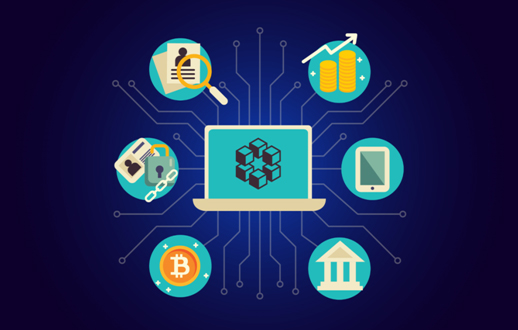Blockchain is a peer-to-peer decentralized ledger system that does away with the necessity for a centralized administration body, such as a financial institution. To put it another way, the system is nothing more than a collection of linked data units. Leading blockchain companies in India are reshaping a range of sectors as transparency is made possible by its open-source, impermeable design.
It provides a streamlined way to conduct business and maintain track of financial activities. This results in a more affordable and time-efficient solution, which banks and enterprises find appealing.
As this new technology gains traction and advances, several changes will occur in business and our mode of living. In this blog, we’ve covered some predictions for the future of blockchain technology and how it will impact several sectors.
Future Predictions Regarding Blockchain
- Distribution of Government Data
Distributed Ledger Technology (DLT) technologies are expected to be implemented by governments to replace paper-based systems. Several companies are moving to digital systems, but DLT offers many advantages that make it even more trustworthy, transparent, and secure than traditional systems.
- Enhanced Industry-to-Industry Communication
In the not-too-distant future, several sectors will likely share a single blockchain. When many systems are combined into one, it is easier for the general public to use, but it also offers more transparency and the underlying security of blockchain technology.
- Cryptocurrencies Issued by Institutions
In the long run, it’s expected that governments will use cryptocurrencies instead of fiat currency. Because of the shorter settlement periods and increased traceability of cryptocurrency, it is a more efficient means of exchange.
It is possible to use different controls to influence the price of cryptocurrencies, just like it is possible to do with fiat currency. This is similar to printing additional money to lower the value of the dollar.
Zimbabwe, for example, has begun utilizing Bitcoin as a hedge against its national currency and is considering developing its national virtual currency.
- Blockchain and Identification
There are several flaws in modern identity systems. They are prone to errors because they are open, isolated, and porous. Blockchain systems can solve these concerns, which provide a single source of verification for identity and assets. Furthermore, blockchain identification may enable a new kind of “self-sovereignty.”
A global blockchain identity network will provide underprivileged people access to legal papers and the rights that go along with it. An open-source encrypted ledger is a more secure place to keep personal information than a 3rd party agency would be.
- Blockchain and the Global Economy
The current state of international trade is one of complexity and dysfunction, which serves to discourage trade between countries and slow down business. Fraud, forgery, shady politics, and mistakes abound in international commerce.
Many of these issues will be solved if blockchain is incorporated into the equation. Using a unified digital worldwide system for payment, documentation, and regulation, most fraud and inefficiencies may be avoided. As a result, a new age of increased international trade and mutual trust will begin.
Blockchain Will Disrupt Several Industries In The Future
- The Banking Sector
There are a few significant problems that the banking industry is now dealing with that can be solved with blockchain technology. Banks presently keep money on behalf of their clients, and they also facilitate the exchange of that money.
Blockchain has a built-in system that is safe and trustworthy enough to keep track of the millions of transactions that take place every day in the banking industry.
By ensuring secure records, the blockchain system might effectively mitigate risk. Furthermore, the decentralization provided by blockchain allows money to be transferred more quickly and at a lower cost.
- Cybersecurity
There is no greater danger to our digital world than cyberattacks. The decentralized nature of the blockchain makes it suited for high-security scenarios.
Bitcoin and other blockchain networks are protected from wide-scale attacks because all of the information stored on them is authenticated and encrypted using cryptographic algorithms, making it impossible for a single point of entry to be exploited.
- Healthcare
Currently, there is a slew of issues with how health data is stored. Centrally stored files allow anybody to view this highly confidential information. That’s why blockchain technology is so critical in this field.
Here, the use of blockchain technology removes the need for a central authority and facilitates the quick dissemination of data. As each block is linked to the next and dispersed among the blockchain nodes, a hacker would have difficulty modifying the content.
- Real Estate Industry
The amount of office labor involved in the real estate industry is well-known to everyone who has either purchased or sold a house in the past. These paper documents cause many problems, but blockchain technology can eliminate them altogether. All reports and transaction records may be safely stored on the blockchain with less effort and money.
As blockchain technology matures and advances, we will see advancements in cryptocurrencies and a range of commercial applications such as smart contracts, digital tracking, and policy enforcement. The influence of blockchain on economic and social development is likely to be larger than most people anticipate.
